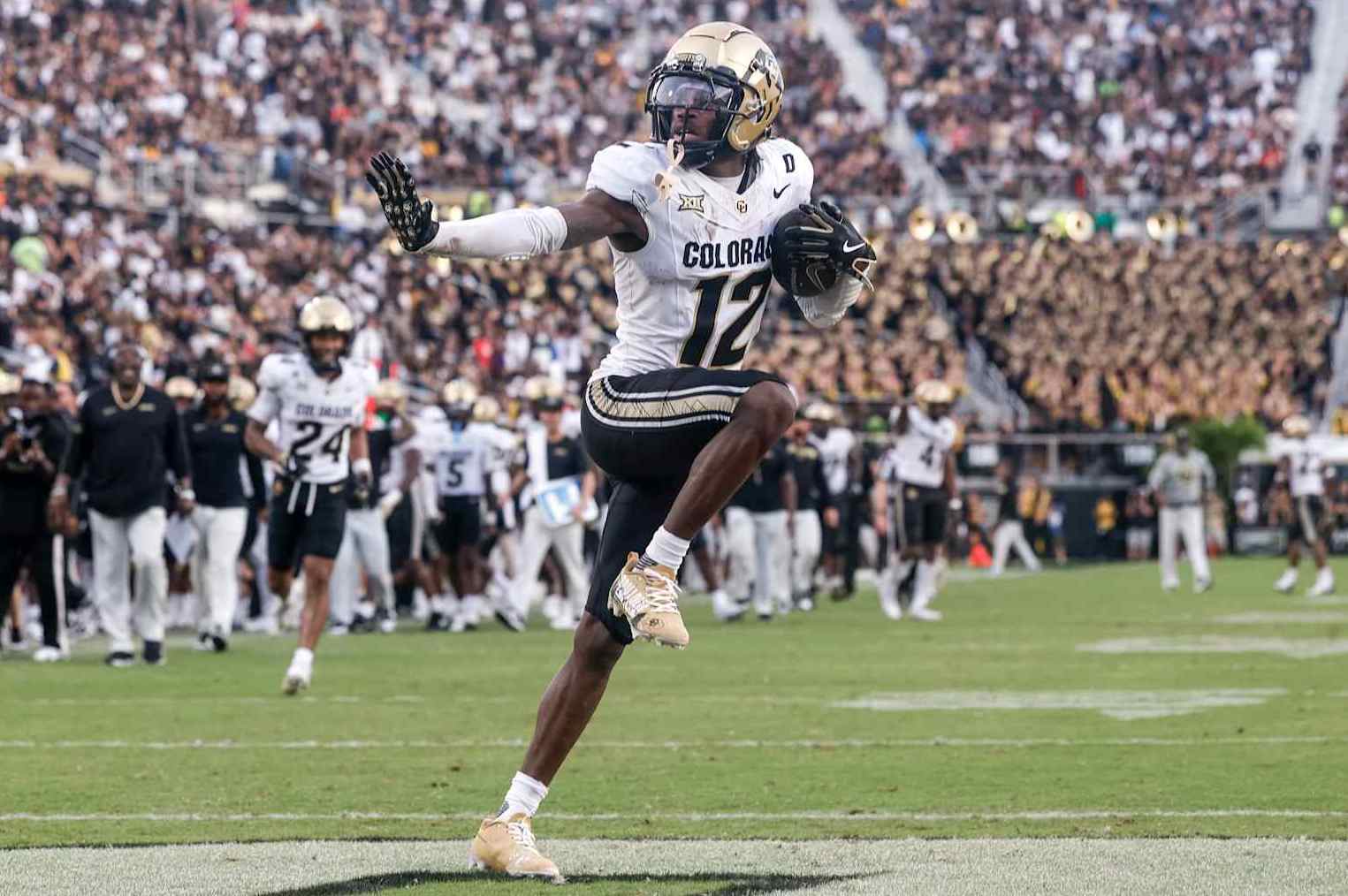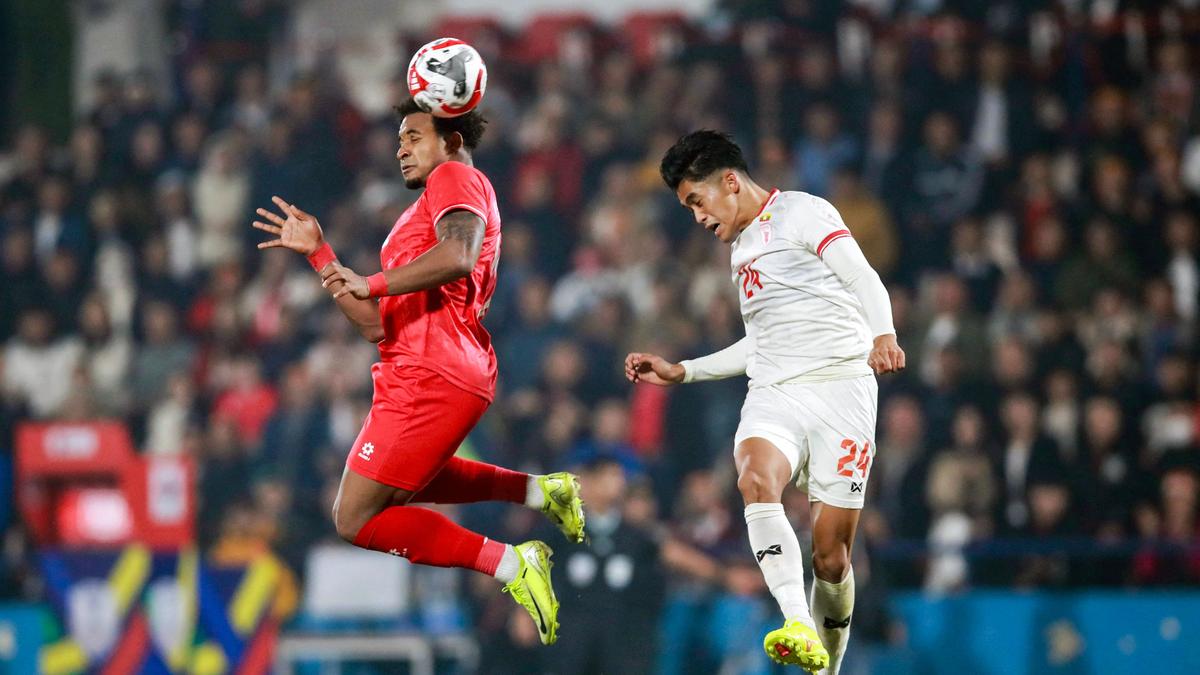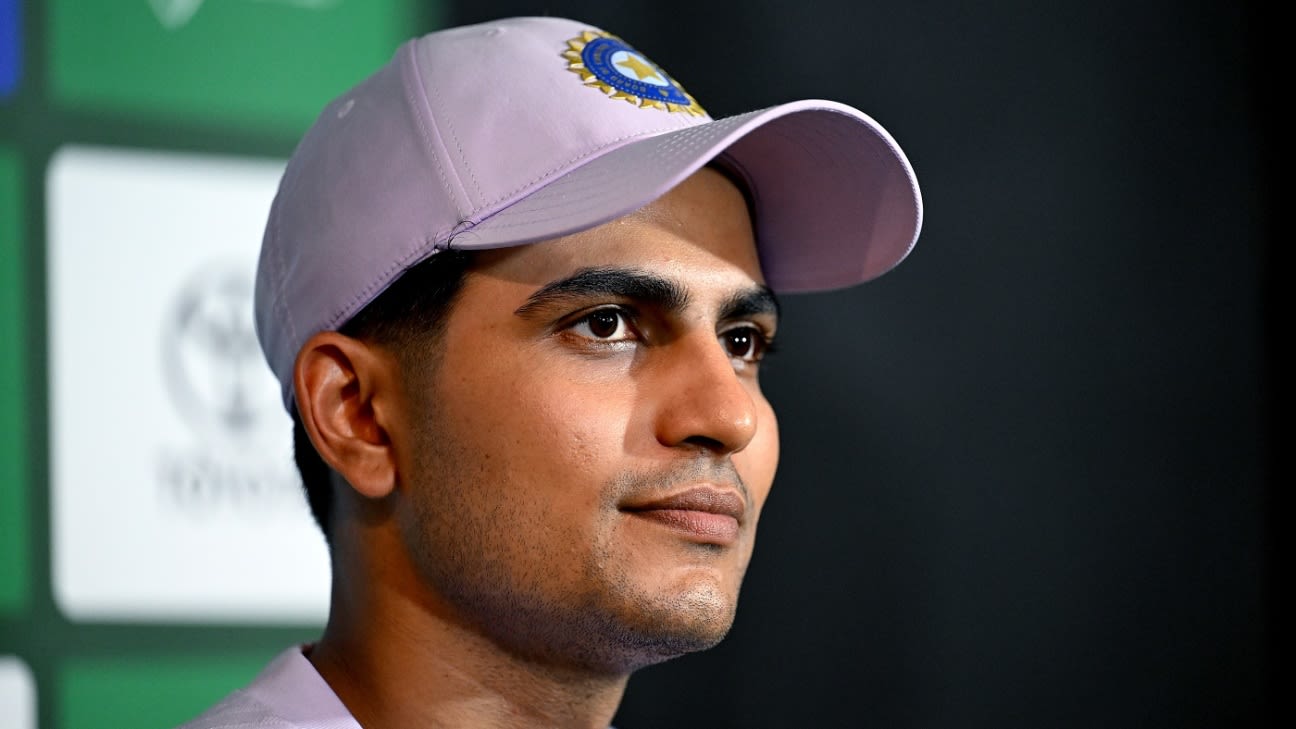
Colorado's Travis Hunter is a unicorn. Not in the trendy way that's often used to describe ultra-talented players during an NFL draft cycle, he's a bona fide one-of-one prospect. His ability to play both ways on a full-time basis hasn't been accomplished during the modern era of major college football.
Not by Charles Woodson, Champ Bailey, Myles Jack or anyone else. As Pro Football Focus noted, Hunter averaged 118 snaps per game, with 713 and 709 defensive and offensive snaps, respectively. The back-to-back Paul Hornung Award winner is simultaneously an elite cover corner and an 1,100-yard wide receiver.

"He's that guy," Buffaloes head coach Deion Sanders told reporters in late November. "His draft status is going to tell everyone who he is. He's probably going to be the first or second pick out of the whole draft.
"Travis is him, man, Travis is that dude. Ain't nobody can deal with him on either side of the ball." What Hunter has accomplished is unprecedented in today's specialized game, where specific premium positions often drive a prospect's value.
However, he almost certainly won't be a full-time two-way player at the highest level. Once drafted, the Bleacher Report Scouting Department's No. 1 overall prospect for the 2025 class should primarily concentrate and develop at one position.
Which spot, though? B/R scouts Dame Parson and Cory Giddings broke down the hybrid performer's pros and cons between the two possibilities and possible fits, with a slight lean toward one particular position. Looking back, Hunter was primarily viewed as a cornerback prospect by high school recruiting services. An argument can be made that being on an island covering an opponent's top wide receiver is where he's most natural.
According to PFF , Hunter posted the third-highest coverage grade and ninth-best passer rating allowed this season. He can immediately enter the professional ranks with truly rare ball skills, hence seven interceptions and 17 defended passes over the last two seasons. "Hunter is an exceptional cornerback, with a rare blend of athleticism, size (6'1"), and football IQ," Giddings said.
"He has the length and body control to cover a wide range of receivers, showcasing impressive acceleration and closing speed that allows him to match up against virtually any offensive threat. His fluid movement and great burst enable him to quickly get in and out of breaks, with the ability to stay in phase with receivers downfield. "Hunter's awareness and vision are key assets, allowing him to read the quarterback's eyes and make plays on the ball in both man and zone coverage.
A true ball-hawk, he consistently turns into the receiver when the ball is in the air, using his strong hands to make contested catches. His ability to play both cornerback and wide receiver at a high level speaks to his versatility, and his physicality is on display when tackling, showing a strong understanding of situational football. "Additionally, his high motor, elite conditioning and effort make him a constant presence on the field, contributing in both the run game and on offense when needed.
"Hunter's physical tools, coupled with his mental acuity and competitive nature, make him a rare and highly intriguing prospect with the potential to be a game-changing defensive playmaker in the NFL." Traditionally, wide receiver hasn't been viewed as a premium position. With AC/DC recently announcing a 2025 North American tour, it's appropriate to remind everyone, "Money talks.
" Currently, 10 different wide receivers have contracts at or exceeding $90 million in total value. Whereas, cornerbacks claim half that number, with only one over $100 million, as compared to seven receivers. As such, cornerback shouldn't be viewed as the automatic solution to which position Hunter should play at the NFL level.
Furthermore, Hunter has a legitimate skill set to be a highly productive professional wide receiver. "Hunter is an explosive athlete who will vertically threaten defensive backs early in reps," Parson said. "This season, he has added more nuance and detail to his release package at the line of scrimmage when facing press alignment.
Hunter mixes up the pacing and speeds of his releases to keep defensive backs on their toes. He has developed the release package to defeat soft-press, off-man and zone coverage drops efficiently. "Also, Hunter has an innate feel for space after the catch and visually identifies closing defenders with elusiveness and agility to force missed tackles.
His change-of-direction and stop-start ability are sudden in the open field. "When the ball is in flight, Hunter excels at high-pointing passes with an aggressive mentality. His body control, hand-eye coordination and outstanding leaping ability are keys to his success in contested catch situations.
"Hunter brings alignment versatility with experience playing the X-, Z- and slot-receiver positions. He attacks multiple coverages and finds the vulnerabilities in the shell. The versatile prospect has a strong pair of mitts to pluck the ball away from his frame.
His great hands make him a reliable receiving option and potential best friend to his quarterback." The awards rolled in for Hunter on the defensive side of the ball. He's the reigning Big 12 Defensive Player of the Year and Lott Trophy winner, as the nation's best defensive player of the year for their personal character and athletic abilities.
However, an inability to concentrate one position makes an individual's plight more difficult when trying to drill down on the intricacies and nuances of a particular spot. As talented as Hunter is, he's still has some rough edges when it comes to coverage, at least from an evaluation standpoint. "While Hunter possesses exceptional athleticism and a high football IQ, there are areas of his game that need refinement to maximize his potential at the next level," Giddings said.
"Despite his impressive length and body control, the two-way star's cornerback technique remains somewhat raw. Not raw in the sense where he is sloppy; he simply relies on his athleticism to compensate for lapses in fundamentals, which could be exposed against top-level competition if not refined. "As a nitpick, his short-area quickness is also one to point to, as he can give a step or two to shiftier slot receivers, potentially limiting his ability to stay with them in tight spaces.
In press coverage, he occasionally opens the gate, thus allowing receivers to gain separation, while his pad level and leverage must improve to prevent this from becoming a recurring issue. "Hunter's physicality is evident in the run game, but he can be overpowered at times, especially by bigger receivers or blockers. He then struggles to disengage.
"These technical inconsistencies and physical limitations in certain situations may require further development before Hunter can fully excel at the NFL level." Of the two positions, wide receiver is the one where Hunter has improved the most during his collegiate career, with plenty of room to ascend further. The 185-pound target improved each season, with significant gains statistically.
The 5-star recruit went from 53 yards as a true freshman to 721 in 2023 and 1,152 this season. His 14 touchdown grabs rank second among all wide receiver '24 output. He did emerge with the fifth-highest graded among FBS wide receivers during the campaign, according to PFF's Max Chadwick .
Granted, injuries played a part in that progression. As such, his availability based on build needs to be taken into account. "The biggest drawback in Hunter's draft profile is his thin, wiry frame," Parson said.
"Although he isn't in the 165-weight bucket, his frame lacks mass. His build and questionable strength are displayed when attempting to combat physical bump-and-run coverage in the contact zone. "Hunter can struggle to dislodge the defensive back's hands after their punches land.
As a result, he will be re-routed and the timing of his route tied to the quarterback's drop is thrown off. Hunter's route tree is not extensive due to the offensive system and play calling in Colorado. He needs to develop/add more routes to his repertoire to reach his ceiling.
" NFL corners are going to be more physical at the jam point if defensive coordinators see weakness in that particular area. They're not going to let Hunter get as many free releases, which will make life far more difficult. As a result, his upside as a target may have a ceiling.
With cornerback serving as the primary evaluation, the following three squads should strongly consider Hunter near the top of the 2024 NFL draft...
. Jacksonville Jaguars Let's start with the obvious, because the Jaguars were the previous owners of the No. 1 overall pick.
Had they kept (or eventually earn) that spot, Hunter is the most likely target for them to select or grab in a trade down. Jacksonville currently ranks next-to-last in pass defense, with a shaky cornerback situation at best. Tyson Campbell is the team's current CB1 after signing a four-year, $76.
5 million contract extension earlier this year. From there, Ronald Darby turns 31 next month. Jarrian Jones has turned out a nice rookie campaign, though he's primarily a nickel corner.
The Jaguars have other draft investments in the position but lack the caliber of play to compete at a high level on the back end. Whereas, Hunter is an excellent fit for the current scheme. Even if the Jaguars make sweeping changes after this season, his talent is far too tantalizing for Jacksonville to go in any other direction if he's available.
Carolina Panthers Interestingly, the Panthers may have the most difficult time picking which position Hunter should play because the squad needs help on both sides of the ball. In this particular case, cornerback has to be under strong consideration, because A) Jaycee Horn will be entering the final year on his rookie contract and B) Mike Jackson is the Panthers' other starting outside corner and a free agent after this season. Furthermore, Carolina lacks depth along its defensive back end.
Hunter, meanwhile, can thrive in Ejiro Evero's defensive scheme, which should allow him to become an instant playmaker, particularly with his ability to drive on balls. Carolina's defense has dramatically improved over the last month. Still, Hunter's talent level can help elevate the entire unit.
Cincinnati Bengals The Cincinnati Bengals have spent significant assets on the cornerback position in recent years, but that may not have been enough. Cam Taylor-Britt entered this season with significant expectations. His season has been a bit of a roller-coaster ride depending on his performance each week.
Dax Hill and DJ Turner II are former early-round draft picks, though both are currently on injured reserve. Also, the organization must make a decision whether it will pick up the former's fifth-year rookie option after this season. Hunter's addition may seem like overkill.
At the same time, Cincinnati's roster is built around quarterback Joe Burrow and wide receiver Ja'Marr Chase. They're going to rack up yards and score points. However, defensive coordinator Lou Anarumo and his unit need to play better complementary football, starting with the secondary to slow opposing passing attacks.
With wide receiver serving as the primary evaluation, the following three squads should strongly consider Hunter near the top of the 2024 NFL draft...
New England Patriots Drake Maye looks every bit the part of a franchise quarterback. The New England Patriots seemingly invested well in this year's third overall draft pick. The next step is properly building around the quarterback position.
New England desperately needs play-makers, and Hunter can immediately enter the lineup as a top option in the passing game. Currently, tight end Hunter Henry leads the Patriots with 58 catches for 610 yards. Demario Davis is the only wide receiver on the roster with more than 25 receptions and 330 yards.
Obviously, Hunter isn't a traditional X-receiver and shouldn't be deployed as such. At the same time, the Patriots can regularly manufacture touches to help him create on the outside and open up space for the rest of the passing game. Carolina Panthers Guess who's back? Back again.
The Panthers are here with a plan. Maybe. Earlier, Carolina was mentioned among the best fits for Hunter to join primarily as a cornerback.
Yet he should also be in the conversation as a wide receiver. Looking at the Panthers' current setup, the latter may be more dire of a need. Bryce Young's re-emergence as the future of the quarterback position drastically helps the rebuilding plan in Carolina.
However, the Panthers have become a run-heavy team, because the offense lacks weapons on the outside to take full advantage of this outcome. The team has promising young targets in Xavier Legette and Jalen Coker. At the same time, far more is needed.
Carolina currently has a bottom-six passing offense. Legette leads the squad with 432 yards. This year's first-round pick does have the potential to emerge as the squad's X-receiver, which will then be complemented by Hunter to possibly create a dynamic young duo for Young to target.
Dallas Cowboys Once again, the Cowboys wide receivers consist of CeeDee Lamb and...
(crickets). Lamb is the team's offensive focal point. That's OK, because he's good enough to warrant that level of attention.
However, the Cowboys may find even more success offensively if the team had a legitimate second threat at the wide receiver position. Jalen Tolbert deserves some credit for upping his production this season. Still, he's provided over 50 receiving yards in a game only twice.
Hunter's underneath and yards-after-catch creativity will provide a completely different element to a group that's already top half of the league in passing offense even without quarterback Dak Prescott playing since Week 9. Lamb and Hunter could make the Cowboys offense deadly with a healthy Prescott pulling the trigger. Ultimately, a choice will be made.
Hunter has never had the opportunity to spend the majority of his time concentrating on one position. By doing so, he has the ability to reach elite status, specifically at cornerback. Even though Hunter can excel on offense or defense and will likely still contribute in both areas to some degree, the conversation boils down to where he can be his very best.
"Hunter has a higher upside as a cornerback due to his exceptional athleticism and tools to match up with the top receivers at the next level," Giddings said. "His rare combination of size, speed, and agility allows him to cover a wide range of threats, while his ball-hawking instincts make him a game-changer. "Few cornerbacks possess the natural ability to track and play the ball in the air like Hunter, and this skill set will set him apart at the NFL level.
His potential to disrupt offenses and create turnovers will make him a standout player and a true game-changer in the secondary." On defense, Hunter's upside extends to becoming the league's best pure cover corner. On offense, he can be highly productive and successful, though not reach the same standard of excellence set by the NFL's very best targets.
"In conclusion, Hunter has a Pro Bowl ceiling as a full-time wide receiver," Parson said. "Between his athleticism, fluid movement skills, ball skills, and route running upside, Hunter projects to be, at worst, a WR2 in a highly functioning passing offense.".














